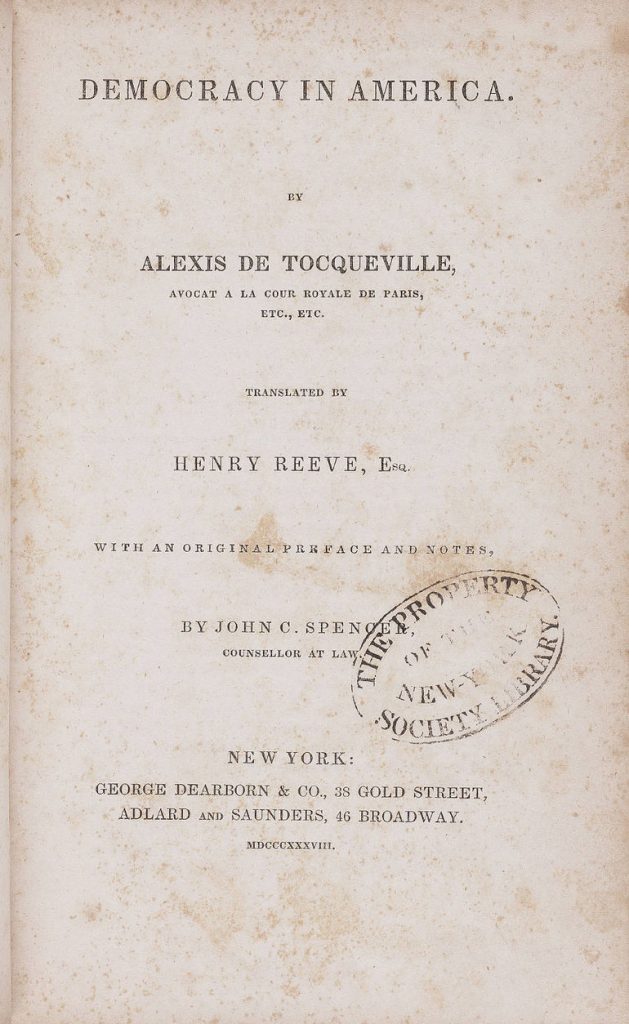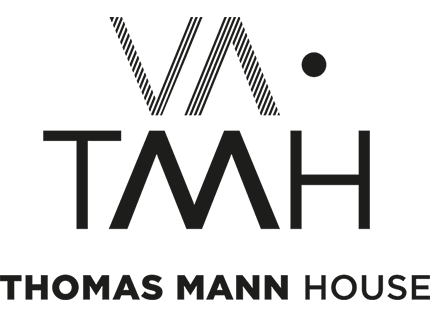The systemic question between Western liberal democracy and Chinese capitalist central state lies at the center of contemporary global political debates. At an event hosted by the Carl Friedrich von Siemens Stiftung on Feb. 13, 2023 entitled “America as Future and Past: Alexis de Tocqueville and Wang Huning,” sinologist Daniel Leese and historian Jörn Leonhard, both from Freiburg, offered two perspectives on this question from a history of ideas perspective. In a panel discussion moderated by Xifan Yang, the China correspondent of Die Zeit, Leese and Leonhard discussed two external perspectives on the United States of America based on Alexis de Tocqueville’s On Democracy in America (1835/40) and Wang Huning’s America versus America (1991).

In doing so, both texts were taken as a starting point for thinking about the past and present of the concept of the West and its continually prognosticated crisis, as Yang emphasized in her introduction to the debate.
In 1831, the French aristocrat Alexis de Tocqueville traveled to the United States for a year and published his observations four years later in a bestselling book. He did not intend to write a subjective travelogue but rather a sober analysis of American political and social conditions which he compared with European events. In America, de Tocqueville saw the advantages but also the limits of a democratic conception of society, the constitution of which he regarded as indispensable for a Europe shaken by revolutions and unstable democratic conditions. In doing so, as Leonhard points out, de Tocqueville wrote a “classic of political and cultural sociology.” He was determined to show what a democracy needs “beyond functional institutions” in order to guarantee “social participation and political stability,” and observed that although political institutions functioned successfully, America lacked the type of “homo democraticus” in society, i.e., a collective democratic habitus at the level of mentalities and individuals. Thus, Leonhard argues, de Tocqueville already had in mind the contemporary pressing question of an “emotional household of democracy.”
What de Tocqueville admired about the United States, Leonhard continues, are the ideal preconditions for democratic processes, for it is an immigrant society in which égalité des conditions exist, equal conditions for all, since property relations, closely tied to political rights, are not prefigured by the system of hereditary aristocracy which prevailed in Europe. Central to de Tocqueville’s liberal thinking is the tension between freedom and equality. The greatest danger for democracy, he argued, is a shift in favor of equality, since for him it was precisely outstanding individuals who constitute a democracy. He therefore argued for a decentralization of power structures, the principle of subsidiarity, and against a bureaucratized state apparatus. Democracy could not function through an abstract and thus alienating system, but through the daily participation of individuals. Although de Tocqueville was impressed by the American “town hall democracy” which implemented this principle, he saw freedom endangered in the U.S. because there were no “cultivated” forms of individuality that functioned as a corrective to the masses. While individuality in America was limited to the pursuit of wealth, there were no grandeurs, great non-conformist intellectuals or artists who refused the pressure of mass conformity. With regard to Europe, de Tocqueville saw in its aristocracy the function of producing strong individuals to protect the principle of freedom within otherwise democratic structures. According to Leonhard, de Tocqueville’s overall aim in his work was to prepare France and Europe for a comprehensive democratization of living conditions.
Daniel Leese sees a “kindred spirit” between de Tocqueville’s On Democracy in America and Wang Huning’s America vs. America. The lesser-known Huning is considered the top thinker and chief ideologue of the Chinese Communist Party, as well as a close advisor to Xi Jinping. As a junior scholar, Huning took a six-month trip to the United States in 1988. His subsequently published travelogue was only published in a small print run, but it proved to be an important reference point for China’s structural transformation since the early 1990s, which has been difficult to analyze from a Western perspective. Unlike de Tocqueville, Huning, according to Leese, is a Western-informed “system thinker” who observes aspects of the United States for potential adaptation and differentiation in Chinese society. Huning is interested in what holds a democratic society together and, in contrast to de Tocqueville, how people become more alike in a capitalist world. In this sense, Huning observes that issues of power and discipline are shifted from government and political bodies to the economy. At the same time, he sees processes of alienation and loss of values, subjectification, and commercialization, which he perceives as a threat from a state-theoretical perspective. Therefore, in order to counteract modern tendencies, as Huning observes in outsider groups such as the Amish People, “core values” are needed in a society that can ensure “psychological security.”
Huning considers American democracy corrupt; politics are determined by elites while citizens have only limited opportunities for participation, especially at the local level. The parties do not stand for values but look for concepts which improve their chances on the political market and to maintain their power. The broad masses, however, have no lobby, which is why American citizens’ trust in institutions is low. Unlike de Tocqueville, Huning considers equal social and economic conditions in the U.S. a fiction. However, Huning supports atomizing society because it leads to greater equality. For Huning, this is of particular importance, Leese emphasizes, because China was undergoing a political transformation in the late 1980s and early 1990s. After a period of liberalization, the system threatened to collapse following the Tian’anmen massacre. In order to counteract alienation like that Huning observed in the U.S., China began a process of centralization toward a “development dictatorship” or “guardianship government,” as Leese calls it.
What can be gleaned from both thinkers with regard to the polarity between the West and China as well as the development of American democracy up to the present? Leonhard does not yet see in de Tocqueville a pronounced sense of an Americanized West. While he is concerned with the opportunities and dangers of the democratization of plural political systems in Europe, America was not yet a weighty reference point for intellectuals in the first half of the 19th century. Nevertheless, Leonhard sees a “seismic quality” in de Tocqueville, since he anticipates important European changes through his observations in the United States. Although one should not project our modern concept of the West back onto de Tocqueville, one can use him to “analyze the complexity of the West” because he precisely describes the differences between the United States and Europe. Moreover, de Tocqueville’s book can be used to analyze the history of the crises of democracy in the U.S., which currently dominates our thinking, and to address core questions about individuality and equality, checks and balances, institutional trust and alienation, and equality of conditions.
Under the “value-conservative state socialist” Huning, China developed a strong central state in an otherwise atomized society. Its central values are an adherence to Confucianism, pragmatic centralization, an identity-forming sense of history, and a willingness to sacrifice the individual for the state and the masses. According to Leese, transforming these convictions into a political habitus is a central pedagogical goal in a state that seeks a balance between extreme equality and liberal spaces for innovative economic thinking. There is no question that China’s turbo-capitalism produces inequalities, as it does in the United States, and that theory and reality diverge. If one deconstructs China’s non-transparent political system as best one can, it becomes apparent that China, too, is not immune to the challenges and questions of an open society, despite being more closed than the USA.
Roman Seebeck




